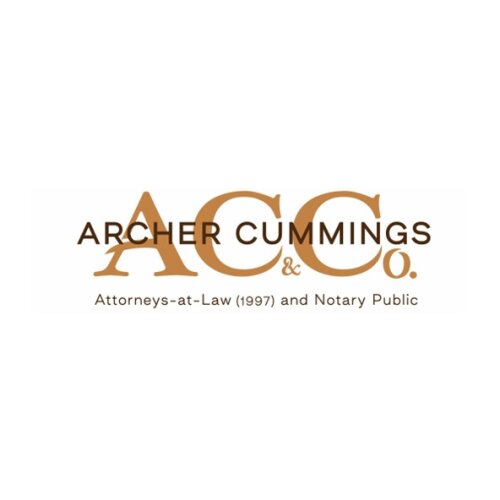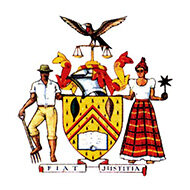Best Appeal Lawyers in Jamaica
Share your needs with us, get contacted by law firms.
Free. Takes 2 min.
Or refine your search by selecting a city:
List of the best lawyers in Jamaica
About Appeal Law in Jamaica
Appeal law in Jamaica provides a legal mechanism for individuals and entities to challenge and seek review of decisions made by lower courts. The appeal process is designed to ensure justice by enabling a higher court to correct errors of law or procedure made by a trial court. The Court of Appeal is primarily responsible for hearing appeals in Jamaica, although some cases may eventually reach the Judicial Committee of the Privy Council in the UK, which serves as Jamaica's final appellate court.
Why You May Need a Lawyer
Several common situations may necessitate legal assistance in appeals: a perceived miscarriage of justice, an error in the application of Jamaican law, an unjust sentencing, or procedural mistakes during the trial. A lawyer can provide valuable assistance by preparing legal documents, formulating grounds for appeal, and presenting arguments effectively in higher courts. Seeking legal advice is crucial because appellate proceedings require mastery of complex legal principles and procedural rules.
Local Laws Overview
The key aspects of local laws relevant to appeals in Jamaica include the Civil Procedure Rules and the Judicature (Appellate Jurisdiction) Act. These laws outline the framework and procedures for filing and arguing an appeal. Appellants must adhere to strict timelines and procedural requirements to avoid dismissal of their appeal. Additionally, appeals are generally based on points of law rather than re-examining factual evidence, highlighting the importance of a well-reasoned legal argument.
Frequently Asked Questions
What is the deadline to file an appeal in Jamaica?
The typical deadline to file an appeal is fourteen days from the date of the decision or judgment in civil and criminal matters. It is critical to act promptly, as missing this deadline could forfeit the right to appeal.
Can new evidence be introduced during an appeal?
Generally, new evidence is not admitted during an appeal. The focus is on reviewing the trial court's application of the law. However, in exceptional circumstances, new evidence may be considered if it is significant and material.
What are the costs associated with filing an appeal?
Filing an appeal involves various costs, including court fees, legal representation, and preparation of records and transcripts. These costs can vary based on the complexity and length of the case.
What is the role of the Court of Appeal in Jamaica?
The Court of Appeal reviews decisions made by lower courts to determine if there were legal or procedural errors. This court either upholds the original decision, reverses it, or may order a new trial.
How does the appeals process differ in civil and criminal cases?
While both processes involve a submission to the Court of Appeal, criminal appeals often concern sentencing or conviction issues, whereas civil appeals usually focus on legal errors affecting the judgment or orders issued.
Who can lodge an appeal?
In criminal cases, both the prosecution and the defendant can appeal. In civil matters, an aggrieved party (typically the losing party) may appeal the decision.
What happens if the Court of Appeal denies the appeal?
If the Court of Appeal denies the appeal, the initial decision stands. In some scenarios, further appeal to the Judicial Committee of the Privy Council may be possible.
Is an appeal an automatic right in all cases?
No, an appeal is not always an automatic right. Some cases require permission (leave) to appeal, particularly if the appeal challenges procedural aspects rather than substantive points of law.
What is the role of legal counsel in an appeal?
Legal counsel drafts legal documents, presents oral arguments, identifies errors in the trial outcome, and provides strategic advice. Effective legal representation can be pivotal to the success of an appeal.
How long does the appeals process typically take?
The duration varies based on case complexity, the volume of cases in the court's docket, and procedural issues. It can range from several months to over a year.
Additional Resources
For further assistance, individuals can consult the Jamaican Bar Association, Legal Aid Council, or the Ministry of Justice. These bodies provide information, resources, and sometimes assistance for individuals navigating the appeals process.
Next Steps
If you need legal assistance in an appeal, consider the following steps: consult with a lawyer who specializes in appellate work, gather all relevant trial documents and evidence, adhere to filing deadlines, and prepare to outline your grounds for appeal clearly. It may also be helpful to attend consultations and seek advice from legal aid services if cost is a concern.
Lawzana helps you find the best lawyers and law firms in Jamaica through a curated and pre-screened list of qualified legal professionals. Our platform offers rankings and detailed profiles of attorneys and law firms, allowing you to compare based on practice areas, including Appeal, experience, and client feedback.
Each profile includes a description of the firm's areas of practice, client reviews, team members and partners, year of establishment, spoken languages, office locations, contact information, social media presence, and any published articles or resources. Most firms on our platform speak English and are experienced in both local and international legal matters.
Get a quote from top-rated law firms in Jamaica — quickly, securely, and without unnecessary hassle.
Disclaimer:
The information provided on this page is for general informational purposes only and does not constitute legal advice. While we strive to ensure the accuracy and relevance of the content, legal information may change over time, and interpretations of the law can vary. You should always consult with a qualified legal professional for advice specific to your situation.
We disclaim all liability for actions taken or not taken based on the content of this page. If you believe any information is incorrect or outdated, please contact us, and we will review and update it where appropriate.
Browse appeal law firms by city in Jamaica
Refine your search by selecting a city.
















